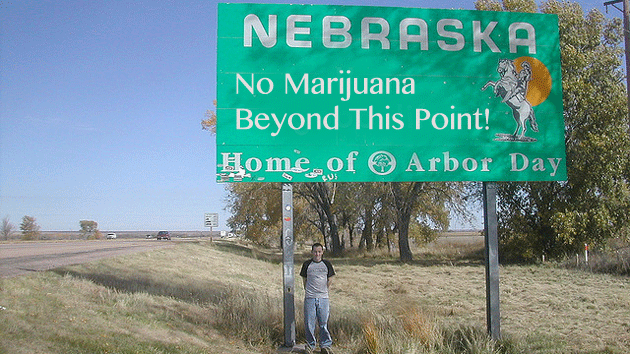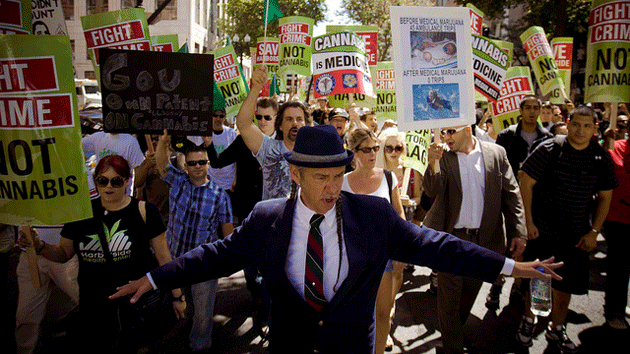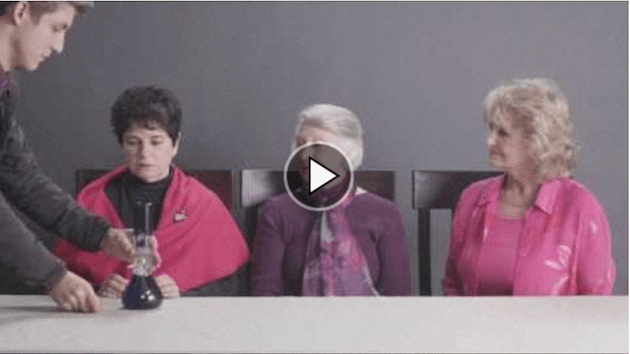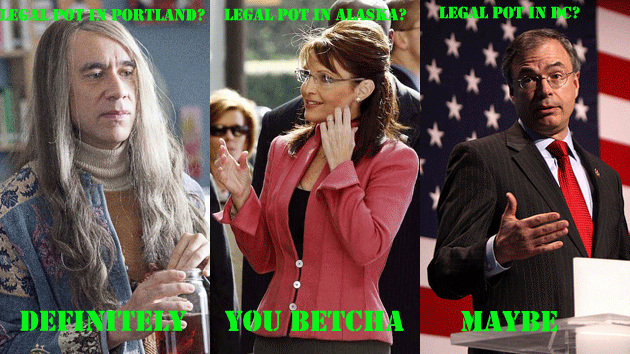
Nebraska is mad that Colorado pot is crossing its border<a href="https://www.flickr.com/photos/rileyoneill/205286014/in/photolist-bsbT5c-ayBWeV-6ZKSSu-8VZtvv-7bBWyi-7fBjA-dU1usL-77A6U-53dgzh-6RpPGy-c9BJKy-77zMX-2hjA5v-3EuCuT-8gawWF-j99o3-c9BJz9-c9CjdS-c5sjyA-c4qn3o-7jUXJq-prh7QW-9fhxx9-5e8rjz-c9CQWy-6yYQ3K-c938wq-6U841p-2hWN4J-cbzDM9-c9ARS3-4kip2-6ADq9D-bUdbTr-bBjppF-c3TURf-7os6V3-AKeU1-a24GZw-dxzmvm-6FTGDS-JPDx1-eZQATQ-q6G72Y-2hTuqi-2ivZue-6z3NJf-6woYYZ-oBNhjf-caQQ23">RileyOne</a>/Flickr
The attorneys general of Nebraska and Oklahoma petitioned the US Supreme Court on Thursday to overturn pot legalization in Colorado, arguing that its legal weed has been spilling across their borders and fueling crime.
“The state of Colorado has created a dangerous gap in the federal drug control system,” the suit alleges. “Marijuana flows from this gap into neighboring states, undermining Plaintiff states’ own marijuana bans, draining their treasuries, and placing stress on their criminal justice systems.”
The Department of Justice pledged last year not to interfere with pot legalization in Colorado and Washington, but only if the states met a list of conditions, including preventing legally purchased marijuana from being diverted to states where it’s illegal. Nebraska and Oklahoma are now arguing that the Supreme Court should compel the DOJ to act.
Evidence has been mounting that Colorado can’t contain all of its weed. In June, USA Today highlighted the flow of its marijuana into small towns across Nebraska. Since 2011, the paper reported, felony drug arrests in Chappell, Nebraska, a town just seven miles north of the Colorado border, have jumped 400 percent.
But marijuana reformers argue that governments can’t contain illegally purchased weed either, and that a few growing pains on the path to a more sensible drug policy are inevitable. “These guys are on the wrong side of history,” Mason Tvert, communications director for the pro-legalization Marijuana Policy Project, said in a statement. “They will be remembered similarly to how we think of state officials who fought to maintain alcohol prohibition years after other states ended it.”
Nebraska attorney general Jon Brunning has actually become too eager to support the alcohol industry, Tvert adds. Between 2008 and 2012, beer, wine, and alcohol interests donated $86,000 to Brunning. In 2012, he advocated for a lower tax rate for sweetened malt beverages such as hard lemonade. “It appears he is fighting to protect their turf,” Tvert says. “He should explain why he thinks Colorado adults should not be able to use marijuana instead.”













